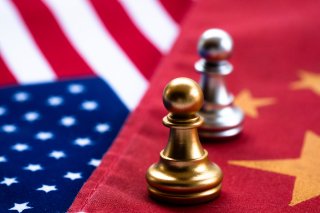For the United States and China, Restarting Talks Was the Easy Part
An “improvement” in communications does not address the fundamental issue between Washington and Beijing: policies by each country that the other loathes.
Beijing has been emphasizing that Washington must keep the commitments Biden made during his talks in 2022 with Xi in Bali, the first face-to-face meeting between the two men since Biden’s election as president. Immediately before his meeting with Blinken, Xi said: “the two sides have agreed to follow through the common understandings President Biden and I had reached in Bali.” Qin Gang and Wang Yi also mentioned the Bali commitments.
What does Beijing think Biden promised in Bali? A PRC media report offers a summary: “The US does not seek a new Cold War, does not seek to revitalize alliances against China, does not support ‘Taiwan independence,’ does not support ‘two Chinas’ or `one China, one Taiwan,’ and has no intention to have a conflict with China, . . . the US side has no intention to seek "decoupling" from China, to halt China's economic development, or to contain China.”
Signposts of Failure
This is a signpost of impending failure. Each of these points suggests misunderstanding on Beijing’s part, to be followed by disappointment. From a U.S. perspective, Biden has kept his word. But as the Chinese should well know by now, Washington’s interpretation of what is allowable under a “one China policy” is far looser than Beijing’s. The U.S. government is clearly and openly committed to strengthening alliances to counter possible PRC military moves and is implementing an industrial policy to reduce vulnerability to China (as China is also doing in reverse). Americans would argue these are prudent defensive actions, not proof of “seeking a New Cold War.” And American officials say they are “de-risking” rather than “de-coupling,” even if the PRC insists on calling it containment.
The momentum gained through the Blinken visit to China will soon stall because the policies that drive the downturn in U.S.-China relations are likely to stay the same. Both sides think these policies are necessary to uphold fundamental national interests. The domestic politics in both countries support these policies. And unfortunately, these policies reflect a new era of great-power rivalry within the same region in which the adversarial aspects of bilateral relations are ascendant.
Denny Roy is a Senior Fellow at the East-West Center in Honolulu.
Image: Shutterstock.

